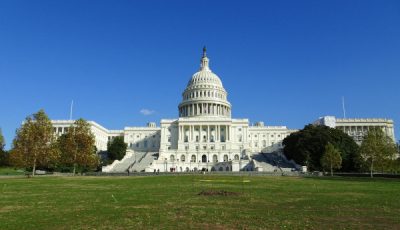Stormy Response: Cohen’s Declaration Too Vague
 LOS ANGELES – In a response to Michael Cohen’s declaration of his intent to invoke his Fifth Amendment privilege “in connection with all proceedings” in the case, Stormy Daniels’ attorney Michael Avenatti argued that Cohen’s declaration “fails to cure Defendants’ deficient stay application” and “less drastic measures are available” to the court than issuing the requested stay.
LOS ANGELES – In a response to Michael Cohen’s declaration of his intent to invoke his Fifth Amendment privilege “in connection with all proceedings” in the case, Stormy Daniels’ attorney Michael Avenatti argued that Cohen’s declaration “fails to cure Defendants’ deficient stay application” and “less drastic measures are available” to the court than issuing the requested stay.
“Despite having been provided an opportunity to cure their deficient application for a stay, Defendants continue to fail to meet their burden,” Avenatti wrote in the response. “That burden requires Defendants to provide the Court with sufficient information from which it can make an intelligent evaluation of the claim of Fifth Amendment privilege. Instead, Defendants offer a skeletal declaration from Michael Cohen asserting an across-the-board, blanket refusal to answer any questions. But such blanket claims of Fifth Amendment privilege are expressly prohibited by law.”
Avenatti further asserted that the defense “mistakenly believe that the mere possibility one defendant may be able to raise Fifth Amendment concerns grants them an affirmative right to a stay. That is simply not the law.”
Avenatti termed the “most glaring omission” in Cohen’s declaration to be “the absence of any explanation as to why his Fifth Amendment rights prevent any of the defendants from adequately defending this case.”
“As the Court knows, Mr. Cohen is not the only witness in this case,” Avenatti wrote. “Thus, even if he takes the Fifth on a question by question basis, the case may proceed with document discovery from defendant Essential Consultants, LLC (“EC”) and others, and with witness testimony from many other witnesses in the case. Defendants offer no meaningful response to this contention. Accordingly, less drastic measures in lieu of a stay are available and should be utilized.”
Cohen’s declaration amounted to “a blanket assertion of the Fifth Amendment privilege,” Avenatti wrote, one which did little to address any of the specific issues raised in Avenatti’s opposition to the requested stay.
“He still makes no attempt to show why his testimony would be self-incriminating,” Avenatti wrote. “He fails to demonstrate the government is investigating, or is even interested in pursuing, criminal charges relating to the Settlement Agreement, the $130,000 payment, or any other issue in this case. There is still no evidence of an actual indictment or that criminal charges relating to anything Mr. Cohen would be testifying about in this case (as opposed to other non-legal, business activities of Mr. Cohen) are imminent.”
In a footnote to the passage quoted above, Avenatti referred to President Trump’s recent call-in appearance on “Fox & Friends” to suggest the FBI investigation may not be related to the case at hand.
“In fact, Defendant Trump this morning repeatedly emphasized that in the investigation, ‘they’re looking [in]to something having to do with his [i.e., Mr. Cohen’s] business’ and not the legal work he did for Mr. Trump in this case, that Mr. Cohen did ‘absolutely nothing wrong,’ that Mr. Cohen is pleading the Fifth because ‘he’s got other things – he’s got businesses,’ and that no campaign funds were used to pay the $130,000,” Avenatti wrote in the footnote. “These statements – which contradict the position taken by Mr. Cohen in this declaration (and by Defendants in their stay application – further underscore why the absence of any meaningful detail in Mr. Cohen’s declaration to enable the Court to make an intelligent assessment of his Fifth Amendment claim is fatal to Defendants’ position.”
As he did in his opposition to the requested stay, Avenatti also argued that Cohen has already waived his Fifth Amendment privilege in the case, and that Cohen’s declaration does nothing to change the analysis of whether the privilege has been waived.
“Mr. Cohen attempts to address his waiver problem with one conclusory sentence: ‘On April 10, 2018 I first realized my Fifth Amendment rights would be implicated in this case, after I considered the events of April 9, 2018, described in the above paragraph 2.’,” Avenatti wrote. “This self-serving statement is insufficient. Mr. Cohen, a practicing lawyer, admits he was aware that the FBI conducted raids of his residence, office, and hotel room. He also admits he was aware the FBI seized materials ‘relating to the $130,000 payment’… It follows, therefore, that if there are any Fifth Amendment concerns to begin with, Mr. Cohen must have immediately identified and recognized those concerns while the raids were occurring on the morning of April 9. Indeed, Mr. Cohen provides no detail as to what, if anything, changed between the time of the raids on April 9 and the next day on April 10.” (All italicized emphasis is from the original.)
Finally, Avenatti’s response asserts that “less dramatic measures are available” to the court than issuing the requested stay.
“Mr. Cohen fails to assert that he and the other defendants would be unable to adequately defend themselves in this litigation without Mr. Cohen,” Avenatti wrote. “Nor has Mr. Trump offered any testimony or other evidence demonstrating why he would be unable to adequately defend himself in this case without Mr. Cohen.”

















